Essentials of Democracy:
Democracy is not merely a form of Government. It is a type of state as well as an order of society. Even friends of democracy at times interpret it to mean only a form of government. Thus J.R. Lowell says that democracy is only “an experiment” in Government. Lincoln defines it as a “government of the people, by the people and for the people”. Seeley describes it as “a government in which everyone has a share”. The topic has been simply made more complicated by these numerous definitions. For a clear conception of democracy, we should categorize its essential elements. A democratic society is one in which the spirit of equality and fraternity prevails. Such a society does not necessarily imply that all individuals should be physically, morally, and intellectually equal. The notion of political equality is really a corollary of moral equality; which recognizes the right of the meanest of men to claim the protection of life and property. Human life is sacred and one has to respect it, regardless of other considerations. It is this respect for life that makes a beggar and a king equal in the eyes of law. The murderer of a beggar deserves the same punishment which is awarded to one who takes the life of a king. This is known as equality before rule of law. Another side of the equality is “equality of opportunity” without which a democracy can never thrive. This phrase is full of many implications- equal pay for equal work; equal work for equal qualifications; equality to elect and to be elected etc.
Once the concept of political equality is accepted, every adult human being with a sound mind has to be given the right of expressing his opinion about the way in which his country is to be governed. This right, known as suffrage, is exercised in the form of electing peoples’ representatives to the legislatures of the country. This is called indirect democracy because in it people guide and control government policies through their elected representatives. Hence, elections form the bedrock of democracy for the success of which an educated and enlightened electorate is necessary, otherwise the “universal suffrage”, observes Proudhon, “in a bourgeoise democracy is the surest mean of making the people lie”. People can understand the working of the Government and the intensity of any problem only when they are properly educated; otherwise, democracy will become a farce, vesting all the powers in a group of privileged aristocrats. In the present state of affairs, elections present a very sorry spectacle. Opposition candidates wash dirty linen in public, making false promises through press and platform and the average elector is befooled, for he lacks common sense. Thus the terms like deficit financing, a sterling balance, etc., are beyond the ken of the majority of voters.
Another mighty pillar of democracy is liberty- liberty not only of physical movements and speech and expression but also of thought. The press should never be the mouthpiece of the ruling party nor an instrument for changing public opinion but it should be open to all to express their opinion fearlessly and may be used even for vigorous criticism of the government. Its importance can be estimated if one keeps in view that in a democracy the deciding factor on any issue is the majority, and truth cannot always be ascertained by numbers alone. The majority, it is asserted, consists of fools. All great men, with original and unconventional ideas, are bound to be in a minority. Since they always try to reform their fellow beings and teach them new ways of thought and action, they fail to win the confidence and support of the majority, which is usually a lover of traditional and conventional ways of life. That is why it is often said that all great truths begin as blasphemies.
Another guiding factor of democracy is the existence of, and due recognition to the political parties. The significance of political parties can never be undermined. It is only the absence of an opposition party that enables people to brand the Communist countries as undemocratic. For the reasons obvious and mentioned above, the judgments in a democratic form of government are always rash and irrational. Sometimes they are even brutal and inhuman. We cannot expect outstanding legislators and parliamentarians like William Pitt, Disraeli, Gladstone, Churchill, and Nehru for all the time in a country. To examine, rebut and counteract their decisions on delicate matters of national interests an opposition party is indispensable. “The opposition”, once remarked Acharya J. B. Kriplani, “works like a pair of brakes in a fast running bicycle, and in its absence, there is every chance of frequent accidents”. Furthermore, this essential element gives vent to another problem: whether there should be a multitude of political parties or should there be only a two-party system? It is a matter of practical experience and does not need much comment. A huge number of political parties can never yield good judgment and sound opposition. They will create only chaos and confusion and would let the ruling party do whatever it likes to. We have got illustrious examples of the U.K. and the U.S.A., where two or three-party system exists and gives weightage to the extraneous voice of the opposition whereas in India, due to a crowd of political parties, the opposition does not carry much weight.
It is obvious that the individual has to realize that he forms the cornerstone of the fabric of democracy and in order to discharge his duties towards himself and the state, he must take an intelligent and broad-minded view. To play his proper role in a democracy, the common man has to be equipped with two things that are the most indispensable: one is education and another is freedom of thought and discussion. Without education, the individual would remain ignorant and susceptible to misleading political propaganda, and in absence of freedom of thought and expression, the average man would face ventilating his own views on the affairs of his country. These two rights would foster a spirit of inquiry and criticism and would further build up opposition to the government without which democracy would degenerate either into a one-party show or disguised dictatorship, because absolute power, if unchecked, has a tendency to become corrupt. The minority consisting of a few individuals may not be in agreement with the majority, but if the minority has legitimate freedom of thought and expression, and if its views are really sound and progressive, it will, in course of time, succeed in shaping public opinion. The minorities of today are the majorities of tomorrow and this is how the governments change and nations progress. But all this is possible only when the individual is enlightened, responsible, and vigilant.
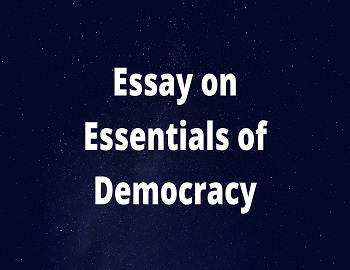
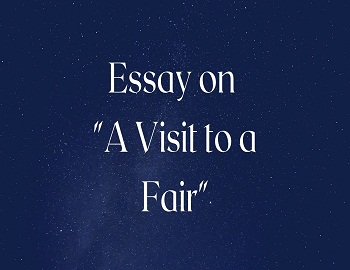


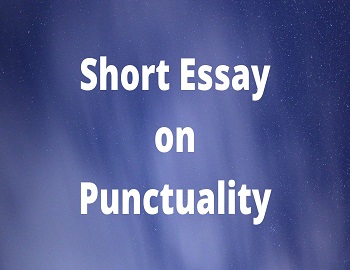
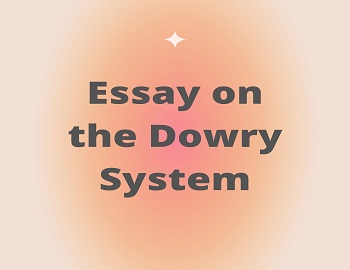

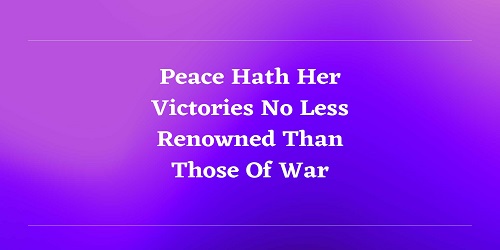
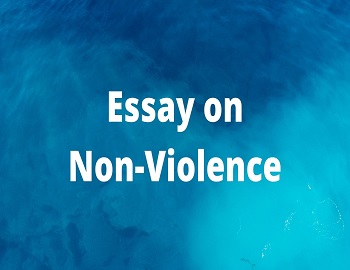
Comments (No)